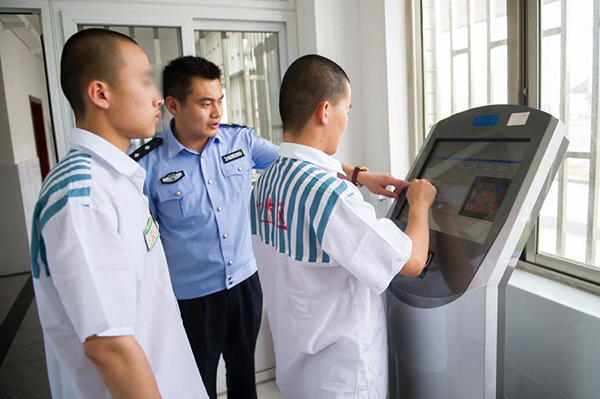Amnesty reflects confidence
Updated: 2015-09-02 08:05
(China Daily)
|
|||||||||||
 |
|
A prisoner shops online at Anhui Reformatory for Juvenile Delinquents on Monday in Hefei, capital of the province. [Photo/Agencies] |
President Xi Jinping has signed a mandate granting amnesty to four categories of criminals, 40 years after the country last granted such a pardon in 1975.
Many countries grant such special amnesties on important national occasions to give wrongdoers another chance. For instance, the Republic of Korea extended a pardon to 6,527 inmates to celebrate its 70th anniversary of independence.
China's move is in accordance with the Constitution and has followed strict legal procedures, such as the top legislature's approval, the issuance of the president's mandate and the judiciary's involvement to confirm eligible candidates.
Unlike those in China in ancient days, which were usually made based on the emperor's personal will, and those based on exchanges of interests, the latest amnesty in China is of great political and legal significance and is expected to produce some positive social effects.
For example, pardoning those who participated in the fight against Japanese aggression or the fight for national liberation and territorial integrity is an official recognition of their contributions to the nation, and lets them have a chance to share in the national jubilation at a time when the country is to commemorate the 70th anniversary of its victory over the Japanese invaders.
The move will incarnate China's spirit of benevolence by extending to wrongdoers a chance at self-correction. The special amnesty also demonstrates China's confidence in its political and legal establishments and promotes social harmony.
The above is an abridgement of a People's Daily article published on Monday.
Related Stories
Special amnesty to set many minors free 2015-09-01 07:45
Authorities issue anti-corruption rules for WWII anniversary amnesty 2015-09-01 07:43
Amnesty combines mercy and law 2015-08-30 16:03
China confirms prisoner amnesty for WWII anniversary 2015-08-29 16:26
Today's Top News
Xi meets with former KMT chairman
Migrants protest as Hungary shutters Budapest train station
China manufacturing PMI falls to 49.7 in August
Migrant trains reach Germany as EU asylum system creaks
Second homes in China need lower down payment
Chinese athletes win 9 medals at Beijing world championships
Houston physicist invited to view V-Day parade in Beijing
Journalist, securities regulatory official held for stock market violation
Hot Topics
Lunar probe , China growth forecasts, Emission rules get tougher, China seen through 'colored lens', International board,
Editor's Picks

|

|

|

|

|

|






